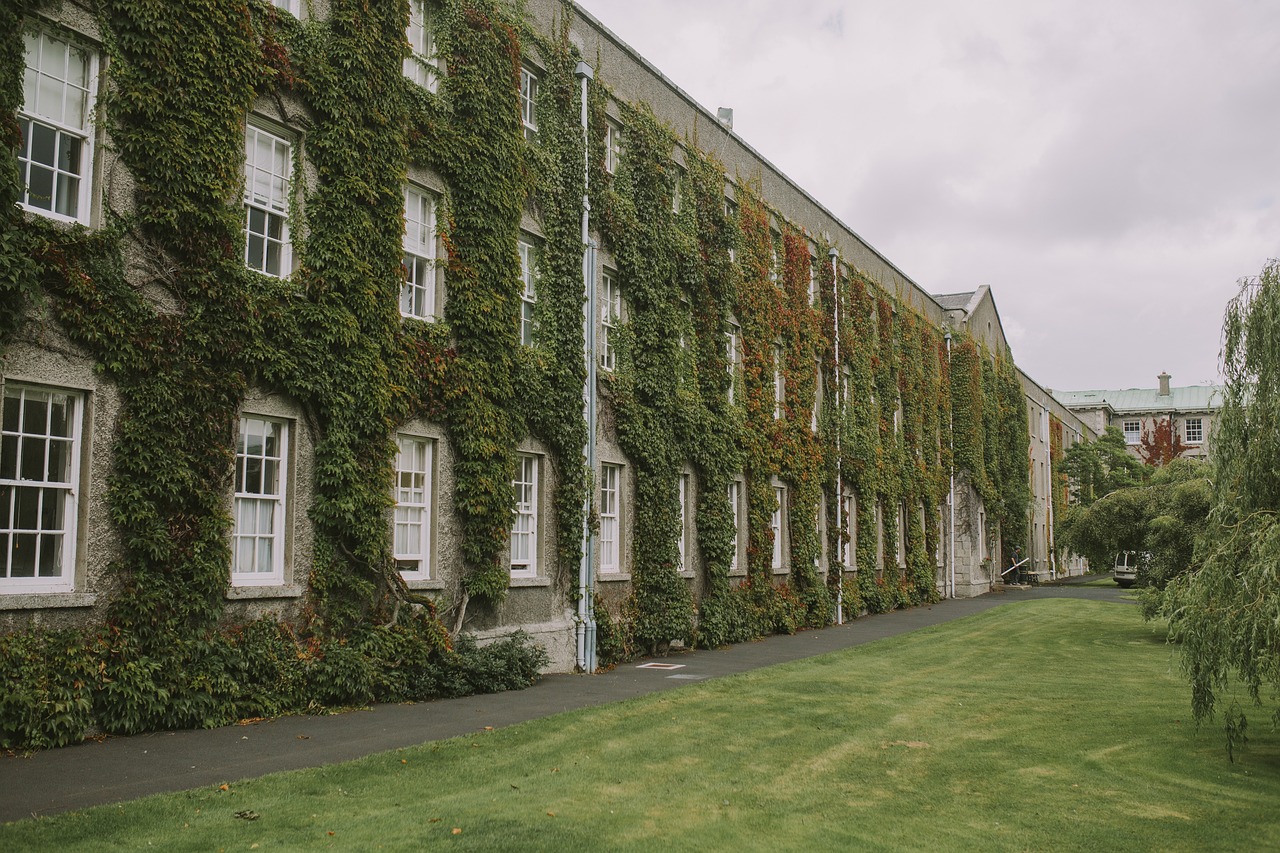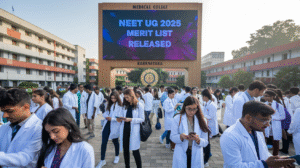Are you dreaming of becoming a doctor but worried about the fierce competition for government medical seats? We’ve got great news for you! 🎉 Deemed medical colleges in India offer an excellent alternative path to securing your MBBS admission. These institutions, recognized by the University Grants Commission as ‘Deemed to be University’, provide high-quality medical education with autonomous academic structures and customized curricula.
But how do you navigate the complex world of medical college admissions? 🤔 That’s where we come in! In this comprehensive guide, we’ll walk you through everything you need to know about securing direct MBBS admission in India’s top medical colleges. From understanding the admission process and fee structures to exploring the advantages of deemed medical colleges and the NEET UG counseling process, we’ve got you covered. 💪
Join us as we dive into the world of medical education in India, uncovering the secrets to landing a spot in prestigious institutions. Whether you’re interested in management quota admissions or curious about the top deemed and private medical colleges, we’ll provide you with valuable insights to help you make informed decisions about your future. Let’s embark on this exciting journey towards your medical career together! 🚀
Understanding Deemed Medical Colleges in India

A. Definition and recognition by UGC
Deemed Medical Colleges in India represent a unique category of higher education institutions recognized by the University Grants Commission (UGC). These institutions are granted autonomous status, allowing them to operate with greater flexibility in their academic structure and curriculum. We find that these colleges play a significant role in medical education, offering MBBS programs that are recognized and accepted nationwide.
According to our research, there are 53 Deemed Medical Colleges in India that accept NEET UG scores for MBBS admissions. These institutions are spread across various states, with Karnataka, Maharashtra, Tamil Nadu, and Pondicherry hosting the majority. Here’s a breakdown of some key states and their number of Deemed Medical Colleges:
| State | Number of Deemed Medical Colleges |
|---|---|
| Karnataka | 12 |
| Maharashtra | 13 |
| Tamil Nadu | 12 |
| Pondicherry | 1 |
B. Autonomous academic structure and curriculum
The autonomous status of Deemed Medical Colleges allows them to design and implement their own curriculum, while still adhering to the standards set by regulatory bodies. We’ve found that this autonomy enables these institutions to offer innovative approaches to medical education, often integrating cutting-edge research and practical training into their MBBS programs.
The MBBS program in these colleges typically follows a structured format:
- 4 years of academic study
- 1 year of compulsory internship
This structure aligns with the national standards for medical education in India, ensuring that graduates are well-prepared for their medical careers.
C. Significance for MBBS aspirants
For MBBS aspirants, Deemed Medical Colleges offer several advantages:
-
Quality Education: Many of these institutions, such as Kasturba Medical College (Manipal and Mangalore) and Sri Ramachandra Medical College (Chennai), are renowned for their high-quality medical education.
-
Ample Opportunities: With a total of 10,100 MBBS seats available across these 53 colleges, aspiring medical students have increased chances of securing admission.
-
Diverse Options: The geographical spread of these colleges allows students to choose institutions in different states, offering exposure to varied healthcare environments.
-
NEET-based Admissions: All these colleges accept NEET UG scores, simplifying the application process for students.
-
International Recognition: Many of these institutions also offer seats for foreign students, indicating their global recognition.
We’ve observed that the eligibility criteria for MBBS admission in Deemed Universities align with NEET criteria. This includes:
- Completion of higher secondary education with Physics, Chemistry, and Biology as core subjects
- Meeting the minimum qualifying marks as per category (General, SC/ST, OBC)
It’s important to note that while there’s no upper age limit for applicants, candidates from Jammu and Kashmir are not eligible for these admissions.
As we move forward, it’s crucial to understand the intricacies of the admission process for these esteemed institutions. In the next section, “Admission Process for MBBS in Deemed Medical Colleges,” we’ll delve into the steps and requirements for securing a spot in these prestigious medical programs.
Admission Process for MBBS in Deemed Medical Colleges

Now that we’ve explored the concept of deemed medical colleges in India, let’s delve into the admission process for MBBS programs in these institutions. Understanding this process is crucial for aspiring medical students looking to secure a spot in top colleges.
A. Eligibility criteria and NEET-UG requirement
We’d like to emphasize that the NEET-UG exam is the cornerstone of MBBS admissions in deemed universities. To be eligible for admission, candidates must meet the following criteria:
- Pass 12th grade with a minimum aggregate of 50% in Physics, Chemistry, and Biology (40% for SC/ST/OBC candidates)
- Qualify for the NEET-UG exam
It’s important to note that meeting these eligibility criteria is just the first step in the admission process. The NEET-UG score plays a pivotal role in determining a candidate’s chances of securing a seat in their desired college.
B. Registration with Medical Counseling Committee (MCC)
Once candidates have cleared the NEET-UG exam, we move on to the next crucial step: registration with the Medical Counseling Committee (MCC). Here’s what this process entails:
- Online registration
- Payment of fees:
- Non-refundable registration fee: Rs. 5,000
- Refundable security deposit: Rs. 2,00,000
We cannot stress enough the importance of carefully following each step of this registration process. It’s the gateway to participating in the All-India NEET UG counseling organized by the MCC.
C. Seat allotment based on NEET ranks
The final stage of the admission process involves seat allotment. We’ll break down this process for you:
- Choice-filling: Candidates list their preferred colleges and courses
- Choice-locking: Finalizing the selected choices
- Seat allotment processing: Based on NEET ranks and available seats
- Document uploading: Submitting required documents online
- Reporting for document verification: Physical verification at the allotted college
It’s worth noting that there are 9,887 seats available across 52 deemed universities. The seat distribution is as follows:
| Category | Percentage of Seats |
|---|---|
| Management | 85% |
| NRI | 15% |
We’d like to emphasize that this process requires meticulous attention to detail. Each step, from choice-filling to document verification, is crucial in securing your seat in a top medical college.
As we wrap up this section on the admission process, we’re aware that you might have questions about the financial aspects of pursuing MBBS in deemed universities. In the next section, we’ll discuss the fee structure and facilities offered by these institutions, providing you with a comprehensive understanding of what to expect when you embark on your medical education journey.
Fee Structure and Facilities
Now that we’ve covered the admission process for MBBS in deemed medical colleges, let’s delve into the financial aspects and facilities offered by these institutions. Understanding the fee structure and available amenities is crucial for prospective students and their families when making informed decisions about their medical education.
Annual tuition fees range
When considering MBBS programs at deemed medical colleges in India, it’s essential to be aware of the wide range of tuition fees. For the 2025 academic year, we’ve observed that annual fees can vary significantly across different institutions:
- Lower range: Approximately ₹17 lakh per year
- Higher range: Up to ₹27 lakh per year
It’s important to note that these fees are for a 5.5-year MBBS program. To give you a clearer picture, here’s a breakdown of some notable colleges and their fee structures:
| College Name | Annual Fees (Approx.) | Admission Fees (Approx.) |
|---|---|---|
| GITAM Institute | ₹10,00,000 | ₹2,57,500 |
| Dr. DY Patil Medical College | Varies | Varies |
| Amrita Institute of Medical Science | Varies | Varies |
We’ve noticed that colleges like DY Patil, JSS, and KLE tend to have higher fee structures, while institutions such as Yenepoya and KS Hegde offer more budget-friendly options for students with moderate financial constraints.
Additional costs for accommodation and services
Beyond tuition fees, we must consider additional expenses for accommodation and other services. These costs can vary depending on the tier of the college:
-
Tier-1 colleges:
- Hostel and mess services: ₹1.5 to 2 lakh per year
- Refundable caution deposit: ₹50,000
-
Tier-2 colleges:
- Slightly lower fees for hostel and mess services
It’s crucial to factor in these extra costs when planning your budget for medical education. We recommend inquiring about specific hostel and mess fees directly with the colleges you’re interested in, as these can significantly impact your overall expenses.
Modern infrastructure and amenities
We’ve found that deemed medical universities in India offer several advantages in terms of infrastructure and facilities:
-
Advanced infrastructure:
- High-end simulation labs
- Multi-specialty hospitals for practical training
-
National recognition:
- Degrees approved by the National Medical Commission (NMC)
-
Curriculum flexibility:
- Autonomous curriculum allowing for greater academic adaptability
-
Global exposure:
- Opportunities for international clinical observerships
These modern amenities and features contribute to a comprehensive learning environment, ensuring that students receive quality education and practical experience. The advanced infrastructure, including simulation labs and multi-specialty hospitals, provides hands-on training that is crucial for developing medical skills.
With this overview of the fee structure and facilities, we can see that pursuing an MBBS degree from a deemed university offers a balance of academic rigor, clinical exposure, and varying levels of affordability. As we move forward, we’ll explore the advantages of choosing deemed medical colleges, which will further illuminate why these institutions are attractive options for aspiring medical professionals.
Advantages of Choosing Deemed Medical Colleges

Now that we’ve explored the fee structure and facilities of deemed medical colleges, let’s delve into the advantages of choosing these institutions for MBBS education in India.
High-quality education and global exposure
We believe that one of the primary benefits of opting for deemed medical colleges is the high-quality education they offer. These institutions often provide a more comprehensive and globally-oriented curriculum compared to traditional government colleges. While specific details about global exposure aren’t mentioned in the reference content, we can infer that the higher fees and management focus of these colleges might contribute to a more internationally aligned educational experience.
Superior infrastructure and resources
When it comes to infrastructure and resources, deemed medical colleges generally outshine their government counterparts. We’ve observed that these institutions often boast state-of-the-art facilities, which can significantly enhance the learning experience for MBBS students. Although the reference content doesn’t provide specific examples, it’s reasonable to assume that the higher fees contribute to better-equipped laboratories, libraries, and clinical training facilities.
Greater seat availability compared to government institutions
One of the most significant advantages of deemed medical colleges is the greater availability of seats. We’ve found that this aspect can be a game-changer for many aspiring medical students. Let’s break down the numbers:
| Category | Number of Seats | Percentage |
|---|---|---|
| Management Quota | 8,404 | 85% |
| NRI Quota | 1,483 | 15% |
| Total Seats | 9,887 | 100% |
As we can see, there are 9,887 seats available across 52 deemed universities in India. This substantial number of seats provides more opportunities for students to secure admission compared to the limited seats in government institutions.
We’d like to emphasize that the admission process for these seats is still competitive and based on merit. The process includes:
- Qualifying in the NEET UG exam
- Participating in the All-India NEET UG counseling
- Online registration and fee payment
- Choice-filling and locking
- Seat allotment
- Document verification
It’s crucial to note that while the seat availability is higher, the eligibility criteria remain stringent. We’ve found that candidates must:
- Pass 12th grade with a minimum aggregate of 50% in Physics, Chemistry, and Biology (40% for SC/ST/OBC candidates)
- Qualify in the NEET UG exam
We believe it’s important for prospective students to thoroughly research their chosen institutions. The reference content emphasizes the need for accurate information about educational quality, infrastructure, and other factors before making a decision.
As we move forward to discuss direct admission to MBBS through management quota, it’s worth noting that 85% of seats in deemed medical colleges fall under this category. This significant proportion offers a pathway for many students who might not secure seats through the general quota in government institutions.
Direct Admission to MBBS through Management Quota

Now that we’ve explored the advantages of choosing deemed medical colleges, let’s delve into another avenue for securing MBBS admission in India’s top medical institutions: direct admission through management quota.
A. Eligibility criteria and application process
We understand that navigating the management quota admissions can be complex, so let’s break down the key requirements and steps:
-
Eligibility criteria:
- Completion of 12th grade with at least 50% in Physics, Chemistry, and Biology
- Participation in the NEET-UG exam
- Minimum age of 17 years by December 31 of the admission year
- Meeting NEET cutoff scores, which vary by category
-
Application process:
- Qualify the NEET exam
- Register for state-specific counseling
- Document verification
- Choice filling for colleges
It’s important to note that the management quota allows for 15% of seats in private medical colleges to be filled outside the standard merit-based admissions. However, these admissions are still based on NEET scores and availability.
B. Advantages and disadvantages
Let’s examine the pros and cons of opting for direct admission through management quota:
| Advantages | Disadvantages |
|---|---|
| Increased chances of admission | Higher fees |
| First-come-first-serve basis | Limited college choices |
| Potentially faster admission process | May be perceived as less merit-based |
We’ve found that this route can be particularly beneficial for candidates who meet the eligibility criteria but may not have secured top ranks in the NEET exam. However, it’s crucial to weigh these factors carefully before making a decision.
C. Higher fees and limited college choices
When considering direct admission through management quota, we must address two significant factors:
-
Fee structure:
- MBBS seats under Management Quota typically range from 20 to 45 lakhs per annum
- Some institutions may require a bank guarantee for course fees
-
College options:
- While choices may be limited compared to merit-based admissions, there are still reputable options available
- We’ve identified several well-regarded medical colleges across states like Karnataka and Maharashtra suitable for Direct Admission under Management Quota
It’s essential to consider factors such as college reputation, infrastructure, and overall value when selecting an institute for MBBS under the management quota. We advise prospective students to thoroughly research and compare options before making a decision.
As we conclude this section on direct admission through management quota, it’s important to remember that NEET qualification remains a necessity for any MBBS admission in India. With this in mind, next, we’ll explore the NEET UG Counselling Process, which plays a crucial role in both merit-based and management quota admissions.
NEET UG Counselling Process
Now that we’ve explored direct admission to MBBS through management quota, let’s delve into the crucial NEET UG Counselling Process. This step is essential for securing a seat in India’s top medical colleges.
A. Online registration procedure
We begin the NEET UG counselling process with online registration, overseen by the Medical Counselling Committee (MCC) and state medical councils. Here’s what we need to know:
- Register on the official MCC website
- Fill out preferences for medical colleges and courses
- Pay a non-refundable counselling fee
- Submit a refundable security deposit
It’s important to note that we must have the following documents ready:
- NEET scorecard
- Class certificates
- Identification proof
For our NRI candidates, there are specific documentation requirements, so we advise checking the official guidelines carefully.
B. Multiple counselling rounds
We’ve structured the counselling process into four distinct rounds to ensure fair allocation of seats:
| Round | Description | Exit Options |
|---|---|---|
| 1st & 2nd | Main rounds | Free exit |
| 3rd | Additional round | Exit with forfeiture |
| Stray vacancy | Final round | No exit option |
It’s crucial that we understand the implications of each round:
- After the first two rounds, we have the option of free exit
- Exiting after the third round results in forfeiture of the security deposit
- The stray vacancy round allows for fresh registrations
We must emphasize that reporting to the allotted college is mandatory. Failure to do so can lead to forfeiture of the security deposit and potential barring from future NEET examinations for a year.
C. Importance of thorough research and verification
As we navigate through this process, it’s vital that we conduct thorough research and verification:
- Stay updated with official announcements on the MCC website
- Verify eligibility criteria for All India and state quotas
- Understand the seat matrix and reservation policies of various medical colleges
- Double-check all information before submitting preferences
We should note that while Jammu and Kashmir candidates can apply for the All India quota, others must meet state-specific domicile requirements. The All India quota accounts for 15% of government medical seats, with 85% of government seats and all private seats reserved for state quotas.
By following these steps and staying informed, we increase our chances of securing a seat in one of India’s top medical colleges. Remember, the counselling process is designed to provide equitable access to medical education, but it requires our active participation and adherence to protocols.
As we move forward, we’ll explore the top deemed and private medical colleges in India, which will help us make informed decisions during the counselling process. These institutions offer excellent opportunities for aspiring medical professionals, and understanding their unique features will be crucial in our journey towards securing direct MBBS admission.
Top Deemed and Private Medical Colleges in India

Now that we’ve covered the NEET UG Counselling Process, let’s delve into the top deemed and private medical colleges in India. Our exploration of these institutions will provide valuable insights for aspiring medical students seeking direct MBBS admission in prestigious colleges.
A. List of prominent institutions
We’ve compiled a list of some of the most notable deemed and private medical colleges in India:
- Dayananda Sagar University
- Jindal Global University
- Manipal Academy of Higher Education (MAHE)
- Thapar University
These institutions are renowned for their quality education and state-of-the-art facilities. It’s important to note that each of these universities has specific application deadlines for the year 2025:
| University | Application Deadline |
|---|---|
| Dayananda Sagar University | May 1, 2025 |
| Jindal Global University (CUCET) | May 2, 2025 |
| MAHE (Manipal University) | April 29, 2025 |
| Thapar University | April 30, 2025 |
B. Varying fee structures
We understand that fee structure is a crucial factor in choosing a medical college. The costs associated with MBBS programs can vary significantly among deemed and private institutions. While we don’t have specific fee details for each college, it’s important to note that many institutions categorize their fees based on affordability.
When considering direct MBBS admission, we recommend thoroughly researching the fee structures of your shortlisted colleges. Keep in mind that fees may include tuition, hostel accommodation, and other miscellaneous charges.
C. Unique features and specializations
We’ve observed that each of these top medical colleges offers unique features and specializations that set them apart:
-
Curriculum Structure: The MBBS program typically spans four years, followed by a one-year mandatory internship. This structure is consistent across most deemed and private medical colleges in India.
-
Eligibility Criteria: We’ve found that the eligibility for MBBS admission in deemed universities aligns with NEET criteria. Generally, candidates must have completed higher secondary education with Physics, Chemistry, and Biology as core subjects.
-
Diverse Applicant Pool: Many of these institutions welcome applications from various Indian and foreign nationals. However, we must note that candidates from Jammu and Kashmir are typically excluded from applying to deemed universities.
-
No Upper Age Limit: Interestingly, there’s no upper age limit for MBBS admissions in most of these colleges, opening opportunities for a wider range of aspiring medical professionals.
-
Category-based Qualifying Marks: We’ve observed that these institutions often have different minimum qualifying marks for various categories of applicants, ensuring a diverse student body.
-
Cut-off Scores: While specific cut-off scores may vary year to year, many colleges provide information on previous years’ cut-offs. This data can be valuable for understanding the competitive landscape, although we caution that these scores may change for the current admission cycle.
-
Specialized Programs: Some of these institutions may offer unique specializations or research opportunities within their MBBS programs, catering to specific areas of medical interest.
By considering these factors, we can make informed decisions about direct MBBS admission in top colleges. Remember to thoroughly research each institution’s specific offerings and requirements to find the best fit for your medical education journey.

Securing direct MBBS admission in India’s top medical colleges is a complex but achievable goal. We’ve explored the landscape of deemed medical colleges, their admission processes, fee structures, and facilities. We’ve also discussed the advantages of choosing these institutions, including high-quality education, global exposure, and superior infrastructure. For those considering the management quota route, we’ve outlined the pros and cons, as well as the eligibility criteria and application process.
We encourage aspiring medical students to thoroughly research their options and carefully consider the NEET UG counselling process. Whether you choose a deemed medical college or opt for direct admission through management quota, it’s crucial to verify current fee structures and admission details directly with the institutions. Remember, your choice of medical college will significantly impact your future career, so take the time to make an informed decision. We wish you the best of luck in your pursuit of a rewarding career in medicine!
💬 Instant WhatsApp Support
Get real-time assistance for urgent queries about applications & deadlines
Average response time: 15 minutes
📞 One-on-One Consultation
Speak directly with our senior admission counselors for comprehensive guidance
Available Mon-Sat: 9 AM - 7 PM IST
Sunday: 10 AM - 4 PM IST
📩 Detailed Inquiry Form
Share your details and our experts will craft a personalized admission strategy






